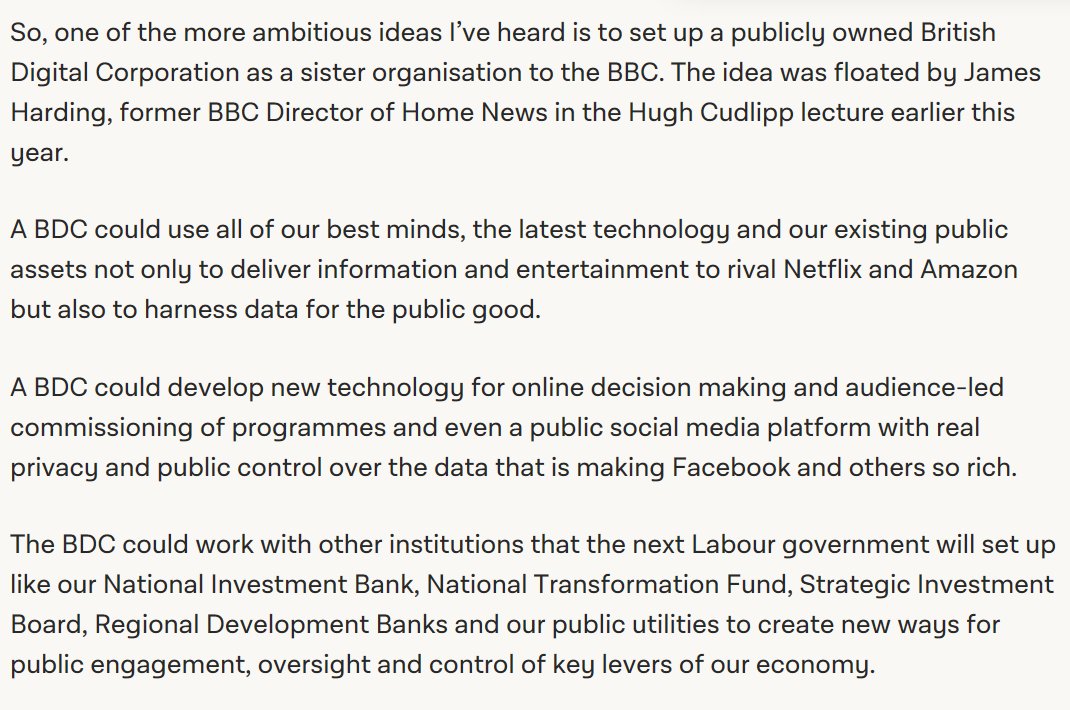Some highlights from @jeremycorbyn #changethemedia speech this morning. 1. Public money to suppport regional and local news co-ops. You only need to look at the difference @TheBristolCable has made to the city's politics to understand the significance of this. 

A national network of news co-ops that bring audiences and journalists together in a partnership to understand where they live, and the world beyond, will have a massive impact on the operations of government at all levels.
We will be able to start developing an understanding of the world on secure foundations, working with people we trust.
2. Democratic reform of the BBC. If we want to talk seriously about the UK media, we have to talk about the BBC. Elections are surely preferable to government appointment. It is important that the electorate have means to assess what people are doing in office ...
... and that election is supplemented with other democratic mechanisms including randomly selected audience panels, and defined, universal powers to engage in consequential decisions about the constitution of public speech.
3. Elections in private media operations. As with news co-ops, I hope this will inspire and energise journalists and would-be journalists. The best of them know that it is punishingly difficult to serve both the public and the demands of the editorial hierarchy. 

4. A British Digital Corporation. This is a massive breakthrough. Corbyn is tying media policy to a much broader agenda of economic and social transformation. The current media system is integral to the operations of capitalism. 

We make economic decisions in isolation, based on cues from a massive persuasion industry derived from, and constantly reinvigorated by, psychological warfare. Meanwhile the media ignore or misprepresent the broader context in which we must act.
A British Digital Corporation offers us a chance to develop new forms of democratic planning, that dispense with both the advertising mystique and the fictions that surround the fundamentals of the economic order - land and credit above all.
This is a bridge that we can build, in the here and now, to a better way of being together. The question is - do we want it enough? Are we willing to argue for it, to improve on it through discussion and reflection?
Time will tell. But this is a good day. #changethemedia and you have a shot at changing the world. Corbyn has said it out loud and no amount of elite ridicule or condescension can unsay it now.
• • •
Missing some Tweet in this thread? You can try to
force a refresh






